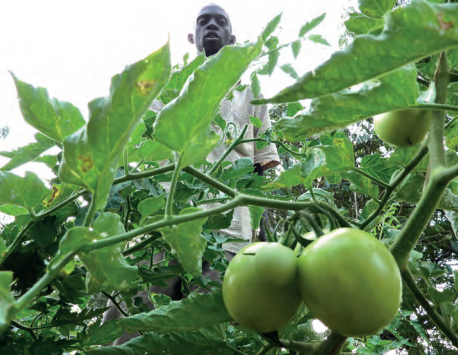
The planned withdrawal of eight active ingredients from pest control products will plant the agriculture sector on shaky ground, cripple food security and reduce exports, a study has shown.
They are set to be withdrawn later by December. Informed growers are opposed. The study was done by aakGROW, an umbrella organisation in Kenya for producers, manufacturers, importers, formulators, re-packers, distributors and users of pest control products.
The organisation is the national representative of the international agrochemical industry represented worldwide by CropLife International. AakGROW is also known as CropLife Kenya.
The study warns that most of the crops will be affected by the move. The 31 critical crops, including maize, wheat, potatoes, flowers, tea, and coffee -cornerstones of the agricultural industry-will be affected, it says.
The study predicts a potential 42.8 per cent reduction in crop yields and a 17.6 per cent drop in farmers; income by end of 2025, driven by inadequate pest management options.
These challenges directly threaten farmer livelihoods and the nation’s food security. The study emphasised the importance of conducting a comprehensive assessment of these regulatory decisions, ensuring the agricultural sector is supported during the transition.
The study criticises the planned withdrawal, saying more than half of the active ingredients withdrawn have no established risk to humans, animals or the environment.
“Having examined the withdrawals, our study mapped the previously registered uses for all the eight withdrawn active ingredients and associated pest control products by pest and crop, finding the withdrawals affected the control of more than 105 pests on at least 31 crops,” the study says.
The crops affected included all the country’s staple food, all its leading agricultural exports and all the most-consumed vegetables, the study says.
The study undertook a review of peer-reviewed studies to map the crop damage done in the absence of crop protection in each pest pathway and their prevalence in Kenya.
The study calculated the net loss without crop protection as the average damage multiplied by the prevalence. For all the crops, based on the use of alternatives and levels of resistance, the model showed that a fall of 10.1 per cent in the volume of output of the 31 affected crops in 2025.
The study reported that of 27 crops affected, 16 will not have restored output to 2024 levels by 2034.
“None of maize, wheat, potatoes, cut flowers or coffee will return to their 2024 output level in 10 years analysed,” it says.
The study said the production of cucumbers, cabbages, kales and French beans will fall by more than 30 per cent in 2025, while tomatoes, eggplant, Kerala, cut flowers, snow peas, squashes, tea, potatoes, barely and sorghum will fall by more than 20 per cent.
In forecasting the impact on farmers’ incomes, the study converted all crop volumes into value at their 2022 prices. The losses were concentrated in the higher-value crops, meaning the loss to agricultural producer’s incomes will be 17.6 per cent in 2025.
“The largest total income losses in 2025 were for cut flowers, maize, tea, and potato growers, ranging from Sh15 billion to Sh37 billion per crop, at 2022 prices,” the report says.
The study shows that for 18 of the 27 crops analysed, farmers’ incomes failed to recover to 2024 levels in the decade ahead, generating total income losses, at 2022 prices, of Sh124.6 billion in 2025 and Sh487.78 billion by 2034.
It shows that over the next decade, the impact on farmers of both lost sales income and new food replacement cost is set to reach at least Sh1 trillion, while the double impact of a reduced volume of foods for sale and reduced homegrown food will trigger a spike in food insecurity.
The study shows that Kenya is already suffering from high food insecurity, primarily due to long-term failure of cereal crops to expand at a sufficient rate to keep pace with population growth.
As a result, Kenyans were getting an average 2,218 calories a day by 2021, 13.8 per cent below the average in Africa of 2,573. The study shows the crops affected by the pest control withdrawals account for 63 per cent of calories consumed by Kenyans.
Pest Control Products in Kenya are regulated by the Pest Control Products Board (PCPB), which regularly reassesses these products to ensure their safety for humans and the environment.
In 2020, PCPB initiated a review process, requesting companies to submit updated data on active ingredients and formulations, leading to the release of their regulatory decisions, including timelines for necessary actions. Some of the molecules set to be withdrawn by December include Pymetrozine, Thiacloprid, Diuron, Chlorothalonil, Propineb, Chlorpyrifos, 2.4-D and Acepthate.
As part of its ongoing commitment to support farmers and safeguard food security, aakGROW supported the comprehensive study assessing the potential impact of withdrawing certain pest control products.
The report evaluates the projected consequences on Kenya’s crop yields, farmers’ income, food security, trade and the overall economy.
AakGROW board chairman Wachira Mureithi said some of the active ingredients set to be withdrawn later this year do not have replacements.
“Communication on withdrawal
to the farmer has not been done effectively and therefore we foresee
that we are going to have an upsurge
of losses in crop production,” Mureithi said.

